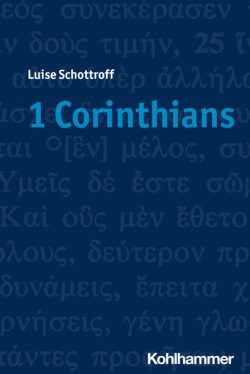Читать книгу 1 Corinthians - Luise Schottroff - Страница 36
На сайте Литреса книга снята с продажи.
3:1–23
ОглавлениеIn 3:1–23 (and Chapter 4) Paul explains in detail that for which he has laid the foundations in 1:10–2:16, namely, that their common bond with the Messiah Jesus—who was crucified by Rome and raised by the God of Israel, and who is now vibrantly alive in the congregation—has consequences for their life together. Competitive structures and other power struggles for dominance in the congregation are, it is true, depictions of the »world« and its wisdom, but they contradict the Messiah and God’s election of the humble. Paul understands his letter to be a paternal word of encouragement and instruction to address this situation. With 3:1–4 he connects with 1:10–18. He offers a fundamental critique of power struggles in the congregation. His principal goal is that the congregation takes seriously the divine riches with which the body of Christ has been gifted, and he draws from them the power to bring about justice. The great expressions of encouragement are core elements of this paternal word of instruction in 1:10–4:21: they are found in 1:30–31; 2:6–16; 3:16, 21b–23. They continue 1:4–9. Here he had reported about his gratitude to God for the way they had been enriched, and he adopted for the first time the enthusiastic tone that is sustained in his expressions of encouragement.
In 3:5–11 Paul speaks about his relationship to Apollos, which plays are role in the rivalries that are evident. For this discussion Paul employs two spheres for his imagery, one from gardening and the other from building houses. In 3:12–17 it then is shown that he understands the edifice, that is, the congregation, to be God’s temple and dwelling place. The issue here is the great responsibility possessed by all who are working on this building. In 3:18–23 Paul summarizes his earlier thoughts about the rivalries and about the holiness of the congregation.
